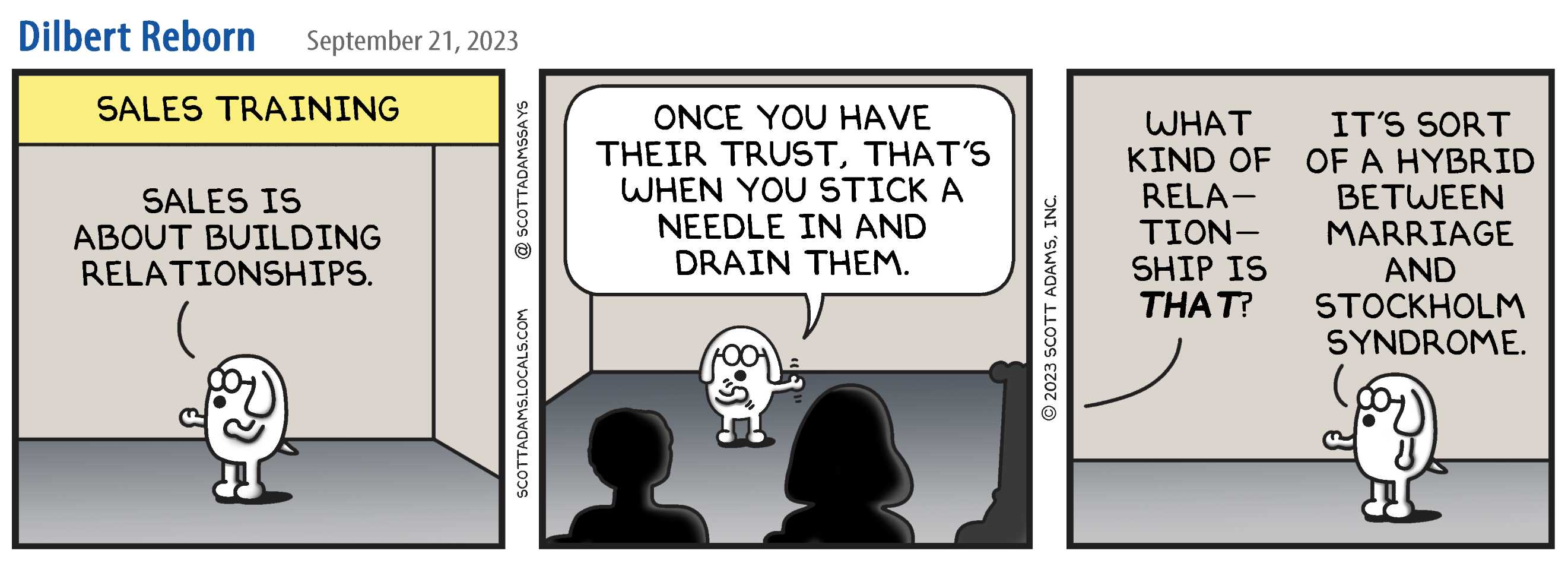A Challenge to Medical Doctors (MDs): if you are not thoroughly investigating patient nutrition BEFORE Prescribing, and also constantly educating yourself on nutrition, you are failing your patients
Modern medicine focuses on goals instead of a systems approach. See Loserthink in Modern Medicine: Goal-Oriented instead of Systems-Oriented.
Prelude
Health starts with nutrition, which at its core means first and foremost avoiding all nutrient deficiencies, which is hard to do with the modern food supply. My bet is that thousands of medical issues affecting (at least) tens of millions of people in this country are primarily the result of poor nutrition, and especially nutritional deficiencies. Pile on garbage food on top of nutritional deficiencies and all hell breaks loose physiologically, short and medium and long term. You are what you eat, and you are what you do not eat.
I am not saying that nutrition is the root cause of all issues (that would be absurd), but it is almost certainly at the core of the raging scourges in health, and not just the big ones of diabetes, mental health, heart disease, etc but the gamut, including neurological and psychological issues, oddball ailments that do not respond to medication, puzzling conditions for which no diagnosis or cure exists, etc.
You cannot have a healthy mind and body if it chronically deficient in even one key nutrient.
It is a shocking idea to me that medicine can be practiced (!) with gaping holes in knowledge about nutrition. After 35 years of my adult life, not one doctor has taken more than a superficial look at nutrition as the root cause of various ailments I have had over my lifespan*. None have had any insight into nutrition that has solved anything. None make a point of rigorously incorporating nutritional considerations as the key to health (“eat a healthy diet”, “take a statin” and similar irresponsible platitudes are the norm). Paint-by-numbers tests good only for obvious malfunctions, a drug for every ailment viewed in isolation, next patient please with industrial disease.
Unfortunately, it has taken me all my life to finally figure out that the one symptom/one diagnosis/one drug mindset that permeates the medical establishment mindset is in reality a form of malpractice, by ignorance. That nearly always, doctors do not see a complex organism, but a specific ailment divorced from its context.
I am now certain beyond any reasonable doubt that most of the issues I’ve had in my life have been nutritional in their root cause. That is fodder for future posts, and if that claim is written off as “anecdotal”, well that’s a rationalization that evades responsibility of asking “what if”. Especially considering that much of what modern medicine tells us about nutrition is toxic bullshit based on politics and money and garbage passed off as science, with so much nutritional “truth” now debunked. We are now a society for which each ailment has its pharmacological treatment—the hell with nutrition as the probable root cause of so many issues.
Of course, doctors cannot shoulder all the blame: there is very little money for research for good health based on nutrition. Who is going to fund a billion dollar study that proves that fixing deficiencies in magnesium or Vitamin K2 cures all sorts of ills? Which might be true, but you cannot patent it, so no funding to find out. And who is going to deal with BigAg and BigFood and BigPharma when their big guns are brought to bear. Rather, billions are spent on single-purpose blockbuster bandaid drugs. Bad for me and you, but very very profitable, the goods being sold being pure human misery.
And yes, I am darn glad I have antibiotics when I need them, and contact lenses. There is a lot of good out there, too.
* Doctors as a group are poorly trained on nutrition, and much of what has been taught has been debunked over the years. It is incumbent upon all doctors to steadily develop far-ranging knowledge of nutrition and its medical consequences.
Getting into it
Some of what follows is intended to offend MD’s for its shock value, to get their attention, to make them stop and react. So let me rub salt in the wound: the more you as an MD are offended, the more you need to print out this call to action and tape it onto your office wall and read it every day until you stop being offended and spend time each day reflecting on how you can improve your patient’s health with whatever it takes.
The day you embrace that attitude is the day that your joy in being a doctor will flower.
Sir or madam MD, how do you assess your patients? Psychiatry, internal medicine, neurology or any other field, do you start with an in-depth look for nutritional deficiencies, including maladjusted dietary patterns that may put extra demands on the body and mind?
Do you take coursework each year on the latest insights of nutritional science (especially the controversial and anti-establishment variety)? Do you as a matter of course question accepted recommendations (each and every one) and ask if they make sense and whether they actually have merit, including the things that are not accepted and not yet “recommended”, researching them and forming preliminary independent views?
Do you read at least one book by another MD and four studies a month on a nutritional topic to freshen your understanding of nutrition vs health, especially from other MD’s or researchers who might have controversial viewpoints?
Do you deepen and widen your skill stack by regularly reading about specialties other than your own?
Do you skip to conclusions in highly touted research instead of looking for flaws, omissions and biased viewpoints? Do you run it all through your own rigorous bullshit filter while carefully checking yourself for confirmation bias and unwarranted cognitive commitments or perhaps even conflicts of interest (status, financial, whatever)?
Are you steadily expanding your knowledge of the vital roles that nutrients like magnesium and Vitamin K2 and Vitamin D and others act in synergistic ways? Are you seeking to understand common deficiencies in those and other nutrients, and how issues in all areas of the body and mind might be subtle manifestations of nutrient deficiency? How the modern food supply may be totally at odds with historical thinking on nutrition?
Are you using tests that look for obvious issues based on decades-old standards, but not considering things you cannot (yet) measure? You don’t find what you don’t look for, and are you always on alert for the dog that doesn’t bark?
If not, you are not doing your job well..
Now I have tremendous respect for the time and effort it takes to become an MD and the vital and difficult challenges you all face. But the role of being an MD requires a clear-eyed view of the world that puts patient care first, and that starts with nutrition, because you are treating a complex organism, not one small part of it. It’s ON YOU to recognize that and take action. Medical school was just a start, not an end, and it taught you more than a few things that are now debunked. And those mentors you had... they might have been brilliant thought leaders if you were lucky, but some (many?) might have been paint-by-numbers follow-the-guidelines types. Don’t become that. Yes I know there are plenty of “immediate action required” exceptions across the medical field, but that is implicit in all I say here.
Practicing medicine well is not about following “accepted” and financially-driven intellectually guidelines that are sometimes scientifically dubious at best, and often toxic. It is about questioning those guidelines rigorously, constantly increasing your knowledge especially including emerging and diverging viewpoints all in order to make the entire organism (patient) fundamentally healthy via nutrition and then and ONLY THEN resorting to pharmacological means. Having that prescription pad quick to hand rather than first addressing Health of the Total Organism is an abdication of your ethical and professional obligations. Yeah, that’s right—if you just felt a knee jerk, you have a competence problem. You must go to great pains to rule out all nutritional deficiencies before 'meds', and over time you must pace and guide your patients along the path of better and better dietary and other practices while accepting that some of them will teach YOU a thing or two. Do you do embrace that idea each and every day for each and every patient?
So, sir or madam MD: I don’t give a rat’s ass if this is “too hard” or “takes too much time” or “my organization doesn’t let me operate that way”. Do it right, or get the hell out of the profession. Fight like hell anyone who tries to stop you from Doing It Right.
And yes, I know that some of you are trying and are doing your best against tremendous pressures. Try harder, and do it better, bit by bit.
“First, do no harm”: the failure of the medical establishment to prioritize total health via nutrition and ruling out nutritional deficiencies first and foremost is doing great harm. If you are not doing that, then you are failing your patients. Install extra mirrors in your home and office as a reminder and look into them each day—are you proud of what you see and what you represent?
Offended? Good! Truth once heard won’t go away so I’ve infected you. Now you have to have to rationalize it away (a temporary fix), or tackle it head on and ask yourself if you are measuring up. Good luck, and best wishes, because when you get it right, your entire life will improve, not to mention your patients.




